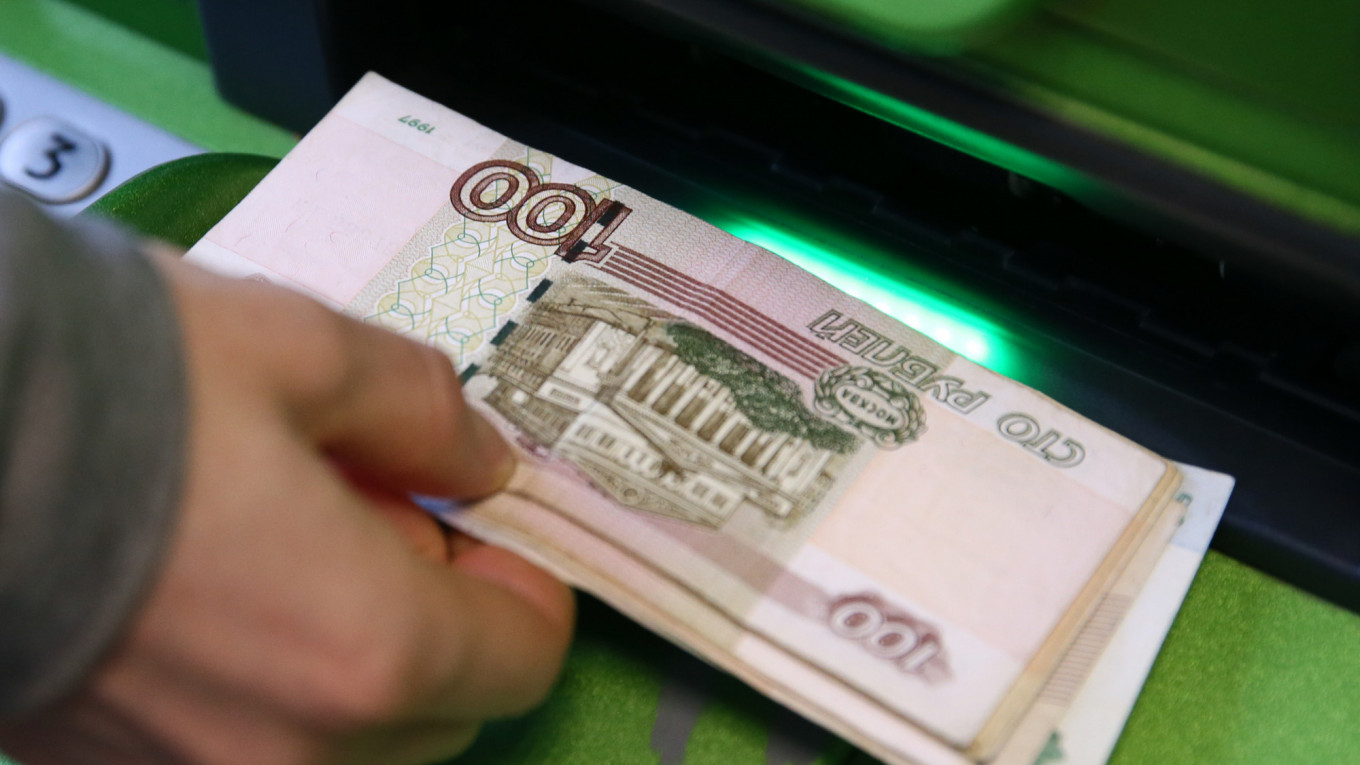Russians took out an all-time high of 2.35 million payday loans in March, according to data compiled by the consumer credit ratings agency Equifax Russia and reported by state media Friday.
In a sign of Russians’ increasing reliance on small lending, Equifax said high-interest microloans increased by 17% since February and by 30% since March 2020.
Microfinance companies gave out a total of 31 billion rubles ($418.5 million), while the average loan size totaled 13,100 rubles ($180) for a third consecutive month this March.
“The growth in payday loans is primarily due to the activity of microfinance companies, including in cross-sales,” Oleg Lagutkin, CEO of Equifax Russia, was quoted as saying by the state-run RIA Novosti news agency.
The surge was also accompanied by a record-setting 5.4 million overdue payday loans.
Out of a total 172 billion rubles ($2.2 billion) owed to microfinance organizations, 61 billion was in march held by borrowers who are more than 90 days behind on their repayment schedule.
Consumer loans also grew by 17% and reached a record total of 340.6 billion rubles ($4.6 billion) in March, Equifax Russia said last week.
The average consumer debt per person also set a record of 308,000 rubles ($4,100), passing the 300,000-ruble mark for the first time along the way.
Russia’s Central Bank has said that borrowers’ average indebtedness has gone up because of falling incomes driven by the coronavirus pandemic.
Still, the state lender remains optimistic about the country’s banking sector, noting that the growth in personal debt burdens has been lower than feared at the start of the pandemic.
A Message from The Moscow Times:
Dear readers,
We are facing unprecedented challenges. Russia's Prosecutor General's Office has designated The Moscow Times as an "undesirable" organization, criminalizing our work and putting our staff at risk of prosecution. This follows our earlier unjust labeling as a "foreign agent."
These actions are direct attempts to silence independent journalism in Russia. The authorities claim our work "discredits the decisions of the Russian leadership." We see things differently: we strive to provide accurate, unbiased reporting on Russia.
We, the journalists of The Moscow Times, refuse to be silenced. But to continue our work, we need your help.
Your support, no matter how small, makes a world of difference. If you can, please support us monthly starting from just $2. It's quick to set up, and every contribution makes a significant impact.
By supporting The Moscow Times, you're defending open, independent journalism in the face of repression. Thank you for standing with us.
Remind me later.






